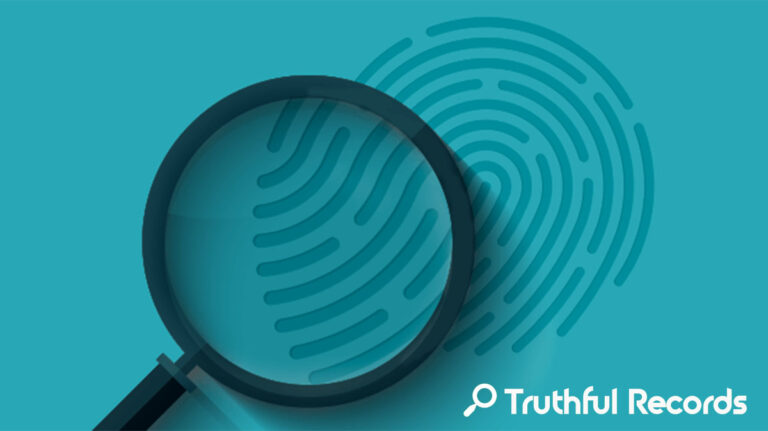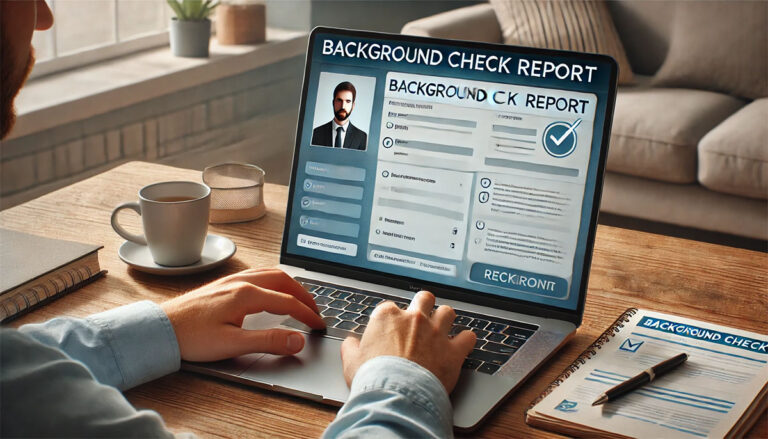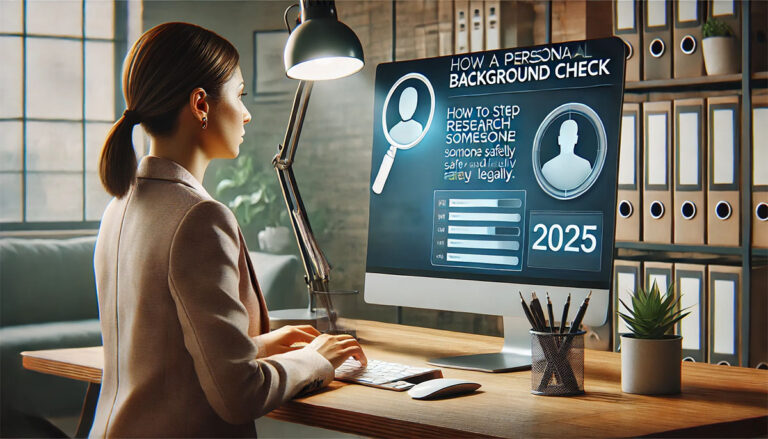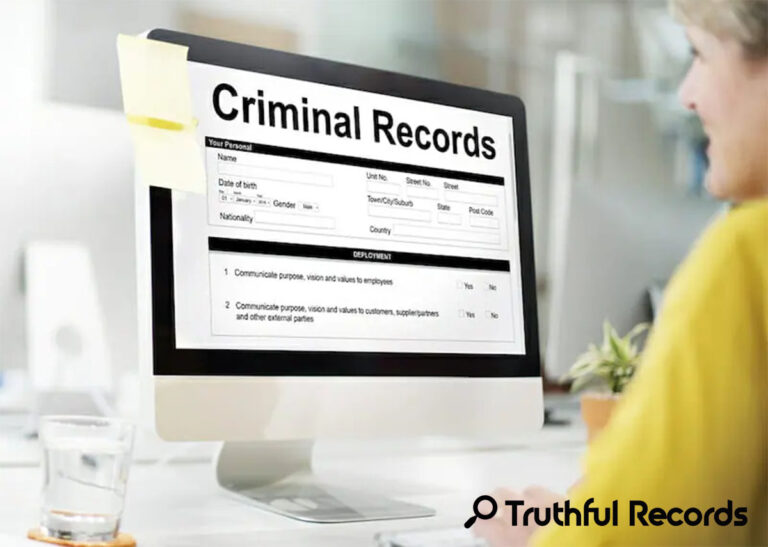What Shows Up on a Background Check: Complete Guide for 2025
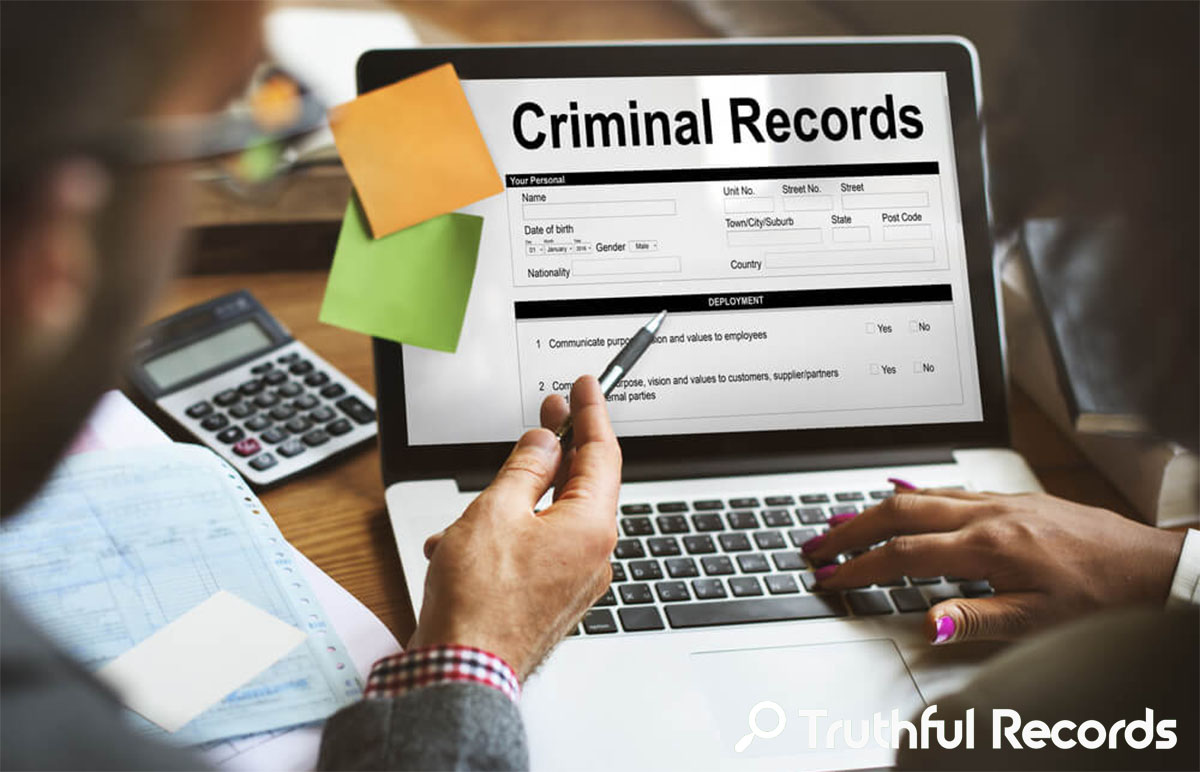
Ever wonder what shows up when someone runs a background check on you? You’re definitely not alone! A huge 98% of Fortune 500 companies do background checks, but most people have no idea how much info these searches can dig up. Trust me, after reviewing thousands of reports, some of the results might really surprise you. In this guide, I’ll break down exactly what shows up on different types of background checks—and what doesn’t! If you want to dive deeper into your own background check, check out this personal background check guide.
Criminal History Information
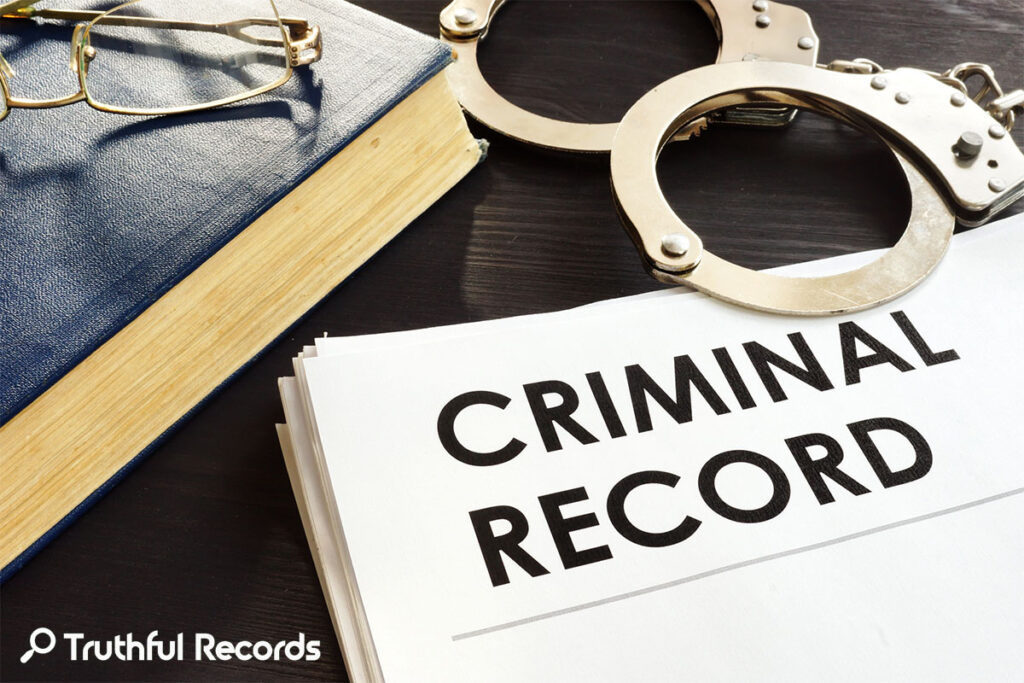
When it comes to background checks, criminal history info is one of the most important—and sometimes concerning—sections. Whether you’re doing a background check on yourself or someone else, understanding what’s included in criminal history can help you manage what shows up. Let’s break down the different aspects, from arrests to dismissed cases, and how they’re reported.
Arrest Records and Convictions
So, what types of offenses show up in your criminal history? Well, this can include anything from a speeding ticket to more serious crimes like theft or assault. It all depends on what’s in the system!
- Types of offenses shown: Typically, background checks will show offenses like felonies, misdemeanors, and even certain infractions. Felonies (big-time crimes like robbery or murder) will usually stay on your record for a long time. Misdemeanors (like minor theft or vandalism) might be a bit less serious but still show up in reports. Some background checks can even include minor offenses like unpaid fines, so it’s always good to know what could appear.
- Reporting timeframes: Now, not everything stays on your record forever. Some things have a time limit for how long they can be reported. For example, criminal convictions might be listed on your record for 7-10 years, depending on the offense and where you live. But some states limit how long certain offenses can be reported to potential employers or landlords.
- Jurisdictional differences: This part can get a little tricky! Each state and even different counties may have different rules about what’s reported. Some states only show felony convictions on a background check, while others might show a whole range of offenses. So, if you’ve moved around a lot, it’s possible for different records to pop up depending on where the check is being run.
Pending Criminal Cases
Now, what about criminal cases that are still in progress? Maybe you’ve got a case that’s still pending, or a charge that hasn’t been fully resolved yet. This can be a huge question mark, especially if you’re worried about what’s being reported. Let’s clear things up!
- Current proceedings: If you’re involved in a criminal case that’s ongoing, it might appear on a background check, especially if the check is thorough. Background check companies often scan court records, which means they could find out about charges that haven’t been resolved yet.
- Case status reporting: The good news is that some background checks will only report cases that are actually “resolved”—meaning you’ve either been convicted or the case has been dismissed. However, in some cases, pending charges might still show up. This can be especially true for serious offenses.
- Information availability: Not all background check companies have access to the latest court records. So, if your case is still in the system and hasn’t been processed yet, some checks might not find any information. But, if the case is public knowledge or widely reported, it could still show up somewhere in the digital world.
Dismissed Cases and Expungements
Got a case that was dismissed or expunged? That’s awesome! But here’s the thing—just because your case was thrown out or erased doesn’t always mean it disappears from your record. So, let’s dive into how these cases are handled.
- Visibility rules: In most cases, if your case was dismissed, it shouldn’t show up in a background check. However, some companies might still report the fact that a case was once filed against you—even if it was dismissed. The key here is making sure that the dismissal is properly recorded and updated in the system.
- State variations: Keep in mind, different states have different rules about what can be seen on a background check. Some states allow dismissed cases to stay visible for a while, while others remove them right away. So, your rights depend on where you live!
- Removal processes: If you’ve had a case dismissed or expunged, it’s possible to have it fully removed from certain background checks. This is where the expungement process comes into play. Expungement is a legal process that “wipes” your record clean, so no one can see it during a background check. However, it’s important to know that even with expungement, some checks might still reveal certain info, especially if they’re really in-depth or if you’re dealing with federal records.
Employment History Details
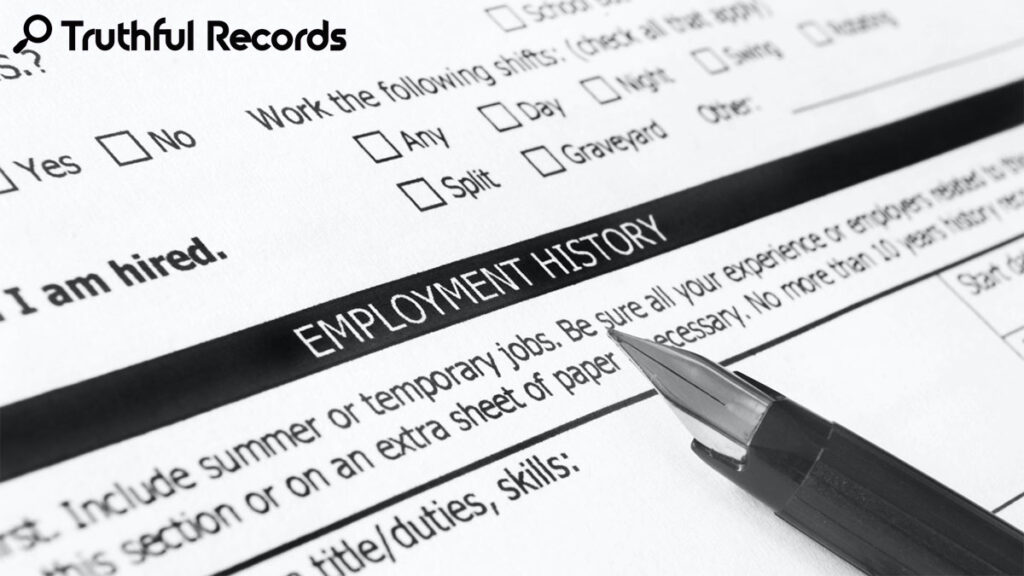
When it comes to background checks, your employment history is often one of the most important sections! Employers and landlords alike want to make sure you’re who you say you are. Let’s break down what shows up in employment history checks and what you can do to keep everything looking good. From job dates to why you left your last position, knowing what’s in your record is key to staying in control.
Work Experience Verification
Employers love to verify work experience to make sure you’re not fudging the details. So, what’s checked?
- Employment dates: They’ll be looking at when you started and ended each job. The dates should line up with what you’ve listed on your resume, but don’t worry—if you were in between jobs, it’s not a dealbreaker. Just make sure your dates are consistent across your application and what the company reports.
- Job titles: The title you’ve listed on your resume is going to be compared with what’s on file with the company. This is important because if you claim to be a “Manager” but the records say “Assistant,” it could raise some red flags. Keep it honest!
- Company information: This might include the name of the company you worked for, the company’s location, and sometimes even a contact person. You’ll want to make sure the company’s info is listed correctly, and it’s also a good idea to check that you’re not being associated with a company that no longer exists or has changed names.
Income History
Your income history often gets checked for salary-related positions, like when you’re applying for a loan or going through a background check for a job in finance. Here’s what gets verified:
- Salary verification: Employers or lenders might want to verify how much you were making at your previous jobs. They might ask your old employer for confirmation of your salary. In some cases, they might not be able to access the exact figure, but they can verify your job level, which gives them a good idea of your compensation.
- Compensation details: This is more than just salary—think benefits, bonuses, or commissions. Some employers will provide this info, but others might only share basic details, depending on their policies or your specific employment contract.
- Reporting limitations: While salary and compensation details are often important, they’re not always included in a background check. In many cases, these details might not be shared unless you’ve specifically given your consent. Also, companies have different policies on how much they’re allowed to disclose.
Termination Records
When it comes to leaving a job, there’s always some info that’s included in a background check. Whether you left voluntarily or were let go, it’s important to know what’s reported.
- Reason for leaving: This is where things get tricky! Some background checks might include a note about why you left your last job—whether you quit, were fired, or left for another reason. If you were let go, be honest about it! Lying could hurt you later. If you were dismissed for a valid reason, like a downsizing or a personal issue, make sure to explain it clearly when asked.
- Eligibility for rehire: This part’s a bit more straightforward. Some companies report whether or not you’re eligible to be rehired. If you left on good terms, great! If there were issues, be prepared to explain them—sometimes it can be worked out, especially if you weren’t at fault.
- Disclosure restrictions: While companies are allowed to share some termination info, there are limitations. Some states or companies only provide basic employment verification (like job titles and dates), so you might not have to worry about detailed reasons for leaving showing up. Always check your local laws and company policies to see what can be shared.
Education and Credentials
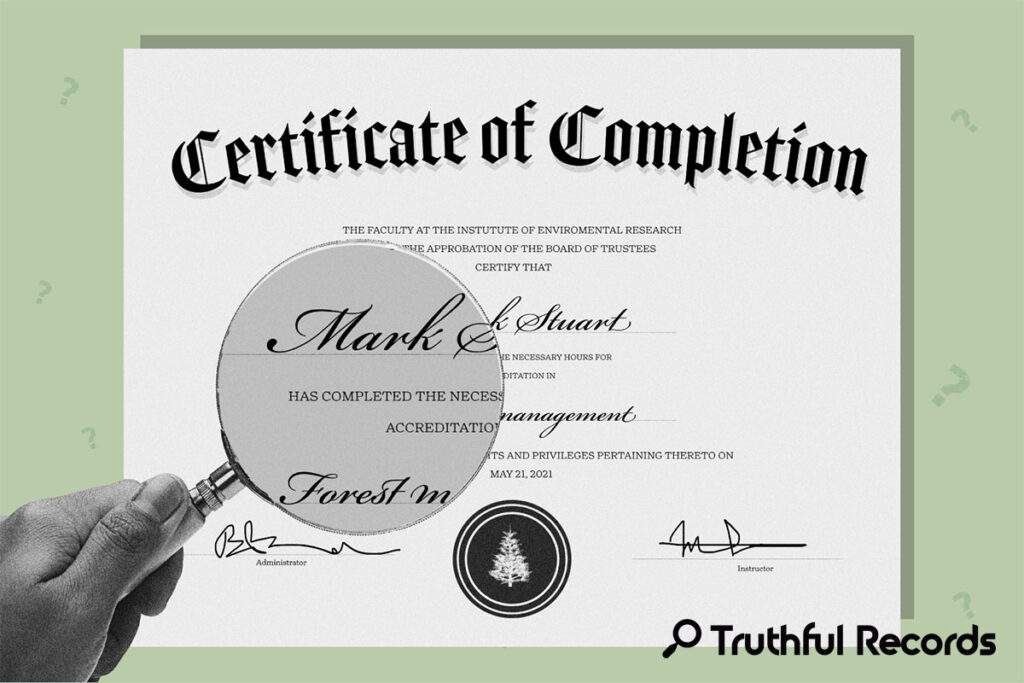
When it comes to background checks, your education and credentials are just as important as your work history! Employers and other institutions want to verify that what you’ve listed on your resume or application is legit. Let’s dive into what gets checked when it comes to your academic history, professional licenses, and certifications, and how to make sure everything is in order.
Academic History
Your academic background is a big part of many background checks, especially when you’re applying for positions that require specific degrees or education levels. Here’s what you need to know:
- Degrees earned: The background check will verify whether you actually earned the degrees you listed on your resume. Whether it’s a high school diploma, associate’s degree, bachelor’s, or even a master’s degree, they’ll be checking to make sure the degree matches up with what you say you’ve achieved.
- Attendance dates: They’ll look at the dates you attended the institution. This ensures you didn’t exaggerate how long you were enrolled or try to sneak in extra time to make it look like you were more experienced. Make sure the dates line up with your official records!
- Institution verification: Most background checks will confirm that the institution you attended actually exists and was accredited. If you graduated from a well-known school, this might be a no-brainer. But if you went to a lesser-known institution, it could take a little extra verification to confirm everything.
Professional Licenses
If you’ve got a professional license, you’ll want to make sure it’s active and in good standing—especially if your job requires it! Here’s what gets checked when it comes to your licenses:
- License status: Employers and regulators will want to verify that your license is current and hasn’t expired. This is especially important for fields like healthcare, law, or finance where working without a valid license can have serious consequences.
- Disciplinary actions: If there’s any disciplinary action tied to your license—whether it’s a warning, suspension, or revocation—this can show up in your background check. If there are any issues, be prepared to explain them! In many cases, these actions are public records and are part of the license verification process.
- Renewal information: Many professional licenses need to be renewed periodically. Some checks will look into whether you’ve kept your license up to date. Make sure to stay on top of renewals, as an expired license could impact your ability to work in your field.
Certifications
Just like professional licenses, certifications can be a big deal, especially in specialized industries. Here’s how they’re typically verified:
- Current validity: Background checks will confirm whether your certifications are still valid. If the certification is required for your job, it’s essential that you keep it active. For example, certifications like CPR, project management, or IT certifications have expiration dates that you’ll need to stay on top of.
- Issuing organizations: They’ll also verify that the certification is legitimate and comes from a recognized and accredited organization. The institution issuing your certification can make a big difference. For example, a certification from a well-known organization like Cisco or Google can carry more weight than one from a less established body.
- Expiration dates: If your certification has an expiration date, this will be part of the background check. Expired certifications can be a red flag for employers, so make sure to renew them in time to avoid any gaps in your qualifications!
Financial Information

Your financial history can be a big part of your background check, especially when it comes to securing loans, housing, or even certain jobs. Employers, landlords, and financial institutions want to know how you handle your finances, so it’s important to be aware of what’s included in your financial background check. Let’s break down the key areas that get reviewed: credit history, civil judgments, and tax liens.
Credit History
Your credit history plays a major role in your financial reputation. When someone runs a background check, they’ll look closely at your credit to see how you’ve managed debt and whether you’re financially reliable. Here’s what gets checked:
- Payment records: This is the big one! They’ll check whether you’ve paid your bills on time. Late payments, especially if they’re frequent, can be a red flag for potential employers or lenders. If you’ve missed payments on things like credit cards, loans, or utilities, those will likely show up in your credit history.
- Account status: The status of your accounts—whether they’re open, closed, or delinquent—will also be checked. For example, if you’ve defaulted on a loan or credit card, that could negatively impact your financial profile. On the flip side, having open accounts with low balances or good standing can help improve your financial reputation.
- Bankruptcy filings: If you’ve filed for bankruptcy, this will show up on your credit report and background checks for up to 10 years (depending on the type of bankruptcy). While bankruptcy is a big deal, it’s not necessarily the end of the world. If you’ve bounced back from it, showing your financial recovery can help clear up any concerns.
Civil Judgments
Civil judgments are court decisions that involve financial obligations. These typically happen when someone sues you for unpaid debts. If a judgment has been made against you, it can appear in your financial background check. Here’s what gets included:
- Court records: Civil judgments are public records, so they’ll likely show up in your background check if you’ve been involved in any legal disputes over unpaid debts. The court will usually file a judgment against you, which can be seen in your financial history.
- Settlement information: Sometimes, civil cases are settled outside of court. If you’ve settled a debt or case, this information may show up as well. The background check might include details about the settlement and whether you agreed to pay a certain amount.
- Payment status: When a civil judgment is filed, the payment status will also be part of the report. Did you pay the judgment in full? Are you still making payments? If you’ve failed to pay, that can affect your financial standing.
Tax Liens
Tax liens are a little different but just as important. If you’ve owed money to the government and failed to pay your taxes, the government can place a lien on your property. Here’s what you should know about tax liens in a background check:
- Government records: Tax liens are public records, so they will appear in your financial background check if you have an outstanding debt with the IRS or state/local tax authorities. They can show up even if you’re working on a payment plan, so it’s important to take care of any outstanding debts with the government.
- Resolution status: The background check will also show whether the tax lien has been resolved. If you’ve paid off the debt and had the lien removed, that will be reported. If you’re still working on paying off the debt, that might still show up as an active lien.
- Time limitations: Tax liens don’t last forever! In most cases, the lien will stay on your record for a certain number of years (usually 7-10), depending on the type of lien. Once the lien expires, it will no longer appear on your background check, giving you a fresh start.
Personal Information Verification
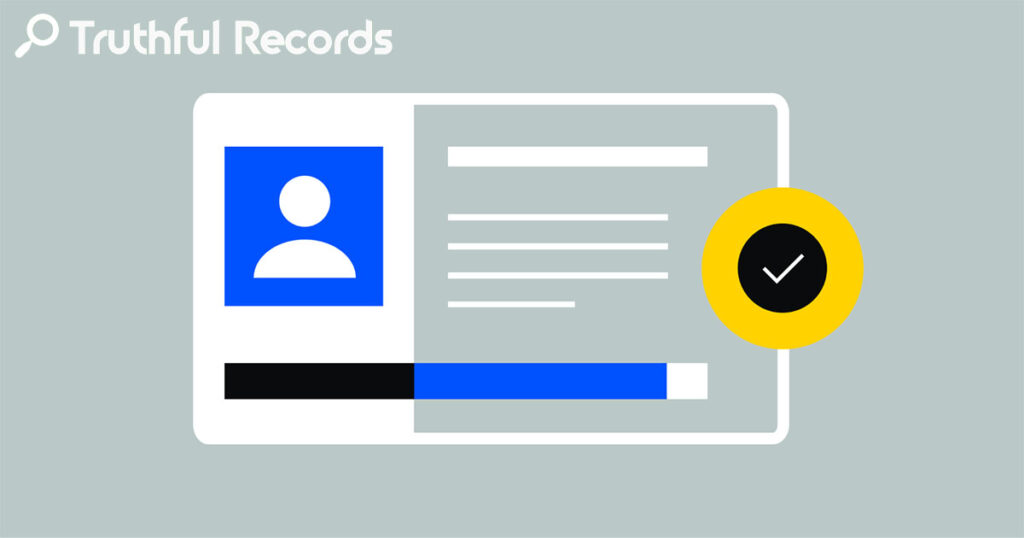
Personal information verification is a huge part of any background check, especially when it comes to making sure the details about you are correct. Whether it’s your name, Social Security number, or address history, the verification process ensures that everything adds up. Let’s break down the key areas that get checked when someone verifies your personal information.
Identity Verification
Identity verification is one of the first things background check companies look into. They want to make sure you are who you say you are, and that the info on your application or resume matches your real identity. Here’s what they check:
- Name variations: It’s not uncommon for people to use different versions of their name, like using a middle name or going by a nickname. Background checks will compare different name variations to make sure they match up with your records. If you’ve ever gone by a different name or had a typo, it could show up, so make sure everything is accurate.
- SSN validation: Your Social Security number (SSN) is a big deal. It’s used to verify your identity, and it should match the name and date of birth you’ve provided. Background check services will use your SSN to pull up your credit report, criminal history, and other personal info. If there’s a mismatch, it could raise a red flag!
- Address history: Your past addresses are also part of identity verification. Companies might cross-check your address history to verify that you’ve lived where you say you have. They’ll usually look back a few years, so it’s a good idea to make sure your address history is accurate and matches your records.
Public Records
Public records are a treasure trove of personal info that is freely accessible. They can include everything from marriage records to property ownership, and these details often show up in background checks. Here’s what to look for:
- Marriage/divorce records: If you’ve been married or divorced, these records are public and can be found easily. If someone runs a background check on you, they might come across these details. While they won’t necessarily impact your background check, you should be aware of what’s on file. If something looks incorrect or outdated, it might be worth checking with the local county clerk to update the info.
- Property ownership: If you own property, this will also show up in public records. Background checks can reveal properties you’ve bought or sold, or even any outstanding mortgages you might have. Be aware that your property ownership history is part of the public domain, and make sure it aligns with what you’ve listed on your application or background check.
- Court proceedings: Any court proceedings you’ve been involved in—whether it’s civil or criminal—are part of public records. If you’ve had any lawsuits, traffic violations, or even disputes with neighbors, they might show up. These details are available to anyone who knows where to look, so it’s important to ensure that court records are up-to-date and accurate.
Legal Status
For certain jobs or situations, your legal status may be a part of the background check process. This is especially true for positions requiring a work visa or in roles that have specific immigration requirements. Here’s what might be verified:
- Immigration status: If you’re not a U.S. citizen, your immigration status will be checked as part of your background verification. This includes confirming whether you have a legal right to work in the country. The process may involve checking your visa status or residency records.
- Work eligibility: Employers need to confirm that you’re legally eligible to work in their country. If you’re applying for a job that requires work authorization, they’ll verify that you have the appropriate visa or residency status to hold the position.
- Visa verification: If you hold a visa, background checks may include verifying your visa status. This ensures that you have the legal right to be in the country and work in specific roles. Employers often verify your visa information with the Department of Homeland Security or other immigration authorities.
Digital Presence

In today’s world, your digital presence is a big part of your background check. Employers, landlords, and other entities may search online to get a sense of who you are beyond the basics. Your social media profiles, news mentions, and online activity can all play a role in how you’re perceived. Let’s break down how each of these aspects impacts your digital footprint and what you can do to manage them!
Social Media Screening
Social media screening is something that’s becoming more and more common, especially when you’re applying for jobs. Employers often take a peek at your online profiles to see what you’re posting, how you interact with others, and if there’s anything in your history that could be a red flag.
- Platform coverage: Background checks may involve scanning multiple platforms like Facebook, Twitter, Instagram, LinkedIn, and even TikTok. Different platforms show different sides of your personality—Facebook might reveal personal interests, while LinkedIn shows your professional side. Employers may look at all of them to get a complete picture. Make sure your profiles match the vibe you want to project, especially on platforms like LinkedIn that are more professional.
- Content analysis: When reviewing your social media, they’ll look at the content you post, the photos you share, and your interactions with others. Anything that’s controversial, offensive, or unprofessional could be flagged. While everyone has their personal opinions, it’s smart to be mindful of what you’re posting publicly. If something’s questionable, consider changing your privacy settings or deleting it altogether.
- Privacy considerations: Privacy is key here. You don’t have to make your entire life public on social media. Most platforms let you control who can see your posts, and it’s a good idea to take advantage of these settings. Keep personal content private, especially if it doesn’t align with your professional or public persona.
News and Media Mentions
Another way your digital presence might be checked is through news or media mentions. Employers or others may look into any press coverage or public appearances you’ve had. Here’s how it works:
- Public appearances: If you’ve been on TV, at public events, or have participated in any interviews, those mentions can show up in a background search. This is especially common for people in the public eye, but it can apply to anyone who’s had notable public exposure.
- Press coverage: Any news articles, blog posts, or media coverage involving you can appear in a background check. It’s important to be aware of how you’re portrayed in the media—whether it’s positive or negative. If you’ve made headlines for something controversial, that could be a factor to address. On the flip side, positive media coverage can work in your favor!
- Online presence: Even if you haven’t had any major press coverage, your general online presence matters. This could include mentions in online publications, forums, or blogs. Your name might be linked to various websites or news outlets, so be sure to Google yourself every now and then to see what’s out there!
Web Activity
In today’s world, your web activity and digital footprint can tell a lot about you. This includes everything from your browsing habits to what you post online.
- Digital footprint: Your digital footprint is basically the trail you leave behind when you use the internet. It includes everything from your social media posts to your browsing history. If you’re signing up for new services, making purchases, or even commenting on articles, it’s all tracked and can be found by someone running a background check. Be mindful of what you put out there!
- Online behavior: The way you behave online—whether it’s your comments, likes, or shares—can reflect your personality and values. If you tend to engage in heated online arguments or spread offensive content, that could impact how people view you. Try to keep things respectful and thoughtful, especially on public forums or professional networks.
- Public posts: Anything you post publicly, whether it’s a comment on a news article or a tweet, can be found. Keep an eye on your public posts, especially if they touch on controversial topics. If you’re worried about something coming up, you can either delete it or adjust your privacy settings to limit visibility.
Restricted Information
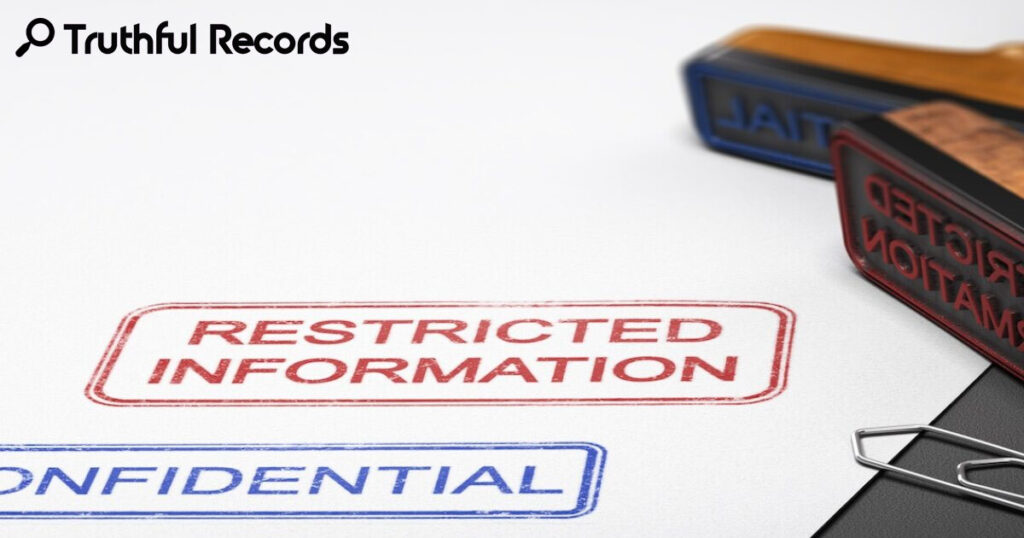
While background checks are often thorough, there are certain types of information that are restricted by law or ethical standards. These pieces of personal data can’t just be accessed freely or used against you. Understanding what’s restricted is key to knowing your rights. Let’s dive into the types of information that can be off-limits during a background check.
Protected Data
Certain sensitive data is protected by privacy laws and regulations. Employers, landlords, and others conducting background checks aren’t allowed to dig into these areas without your explicit consent. Here’s what’s typically considered protected:
- Medical history: Your health-related information, including any medical conditions or treatments, is off-limits in most background checks. Employers can’t ask about your health status unless it directly impacts your ability to perform the job, and they can’t use your medical history against you. If you’re applying for a job, don’t worry—your medical history is not fair game unless you’re applying for a role that requires a health examination (like certain types of physical labor).
- Genetic information: Your genetic data, including things like family medical history or genetic testing results, is also protected by laws like the Genetic Information Nondiscrimination Act (GINA). This means employers can’t access or use genetic information in hiring decisions, nor can they ask about it during a background check.
- Religious affiliation: Your religion, or lack thereof, is a deeply personal matter. Background checks generally can’t include information about your religious beliefs, unless you voluntarily share it in specific contexts, like if you’re applying for a role at a religious organization.
Time-Barred Items
Some things in your background are “aged out” over time, meaning they can’t be used in certain situations once a certain amount of time has passed. These items are considered time-barred, and there are limitations on how long they can be reported.
- Aged-out records: If you’ve had a criminal conviction, bankruptcy, or civil judgment, many of these records can only appear on background checks for a limited time. Typically, criminal convictions can show up for 7-10 years, and bankruptcies can be listed for up to 10 years. After that, they’re considered “aged out” and shouldn’t be part of a background check.
- Reporting restrictions: Some states and jurisdictions have stricter rules about what can be reported, especially when it comes to criminal offenses or financial issues. For example, certain minor offenses might not show up after a certain time frame, and civil judgments may only be reportable for 7 years. If something’s past its reporting window, it should be excluded from the report.
- Legal limitations: Many legal protections exist to prevent certain records from being reported after a set period. These limitations depend on the jurisdiction, but they generally exist to protect individuals from being penalized for old mistakes. Always check your state’s laws to see what’s protected.
Privacy Rights
When it comes to your personal information, privacy rights are a big deal. There are specific legal protections in place to make sure your information is used properly—and that you’re not being subjected to unnecessary invasions of privacy.
- Access limitations: Your personal information isn’t just available for anyone to access. There are strict rules about who can access what data and for what purposes. For example, unless you’re applying for a job, you generally have the right to keep certain information (like medical history or financial records) private.
- Consent requirements: For certain types of information, background check companies are required to get your explicit consent before they can access it. For example, your credit history or criminal record typically requires your permission. In many cases, companies need to inform you about the information they’ll be checking before they do so.
- Legal protections: Privacy laws, like the Fair Credit Reporting Act (FCRA), protect your rights when it comes to background checks. These laws ensure that companies are only using your information for authorized purposes, and that you have the right to challenge incorrect or incomplete information.
Conclusion
Knowing what shows up on your background check is super important in today’s world where everything’s tracked! It might seem like a lot of info is out there, but don’t stress—there are strict laws that control what can be reported and how it’s used. By staying on top of what’s on your background check, you can keep your personal info in check and fix any issues before they become a problem. Take control by regularly checking your records and understanding your rights about what’s included.

